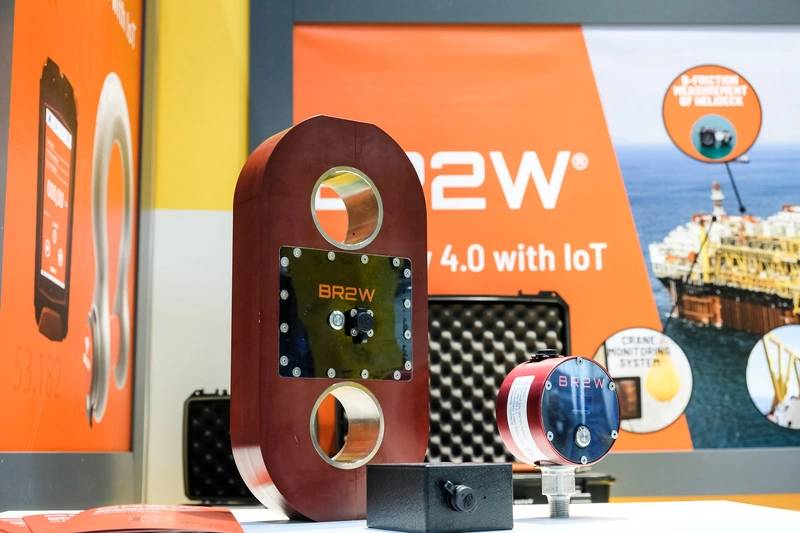

As an industry central to global energy supply, many consumers may believe that the oil and gas sector is relatively resistant to fluctuation. However, amid the myriad pressures felt throughout the global economy over the past year and a half, new challenges are arising for oil and gas operators, some of which require a shift away from traditional practices. From resource availability and a renewed sense of urgency surrounding environmental sustainability, to strains on the supply chain and increasing globalization – oil and gas operators need new solutions that meet the demands of this quickly-evolving sector.
As one of the top global oil and gas markets from a consumption, production, and distribution perspective, Brazil is increasingly being looked to by global investors and business leaders as a key innovator to drive the development of these solutions – and Brazil’s tech-driven start-up community is answering the call with a flood of new ideas. By leveraging next-generation technologies like AI, IoT, machine learning and more, these companies are addressing some of the biggest challenges facing not only the Brazilian oil and gas market, but also the global sector more broadly.
This year, Apex-Brasil brought together 33 of these innovative Brazilian companies and startups at the annual Offshore Technology Conference (OTC) in Houston. Here are some of biggest challenges Brazil is tackling with solutions that will shape the future of oil and gas coming out of the dialogue at OTC this year: Photo courtesy Apex-Brasil
Photo courtesy Apex-Brasil
1. POB and labor restrictions.
People on board (POB) – or the number of workers permitted aboard an offshore rig at any given time – has been, and continues to be, a constraint on growth for many offshore operations. Indeed, as offshore platforms often exist dozens of miles off the coast, POB is often limited by the availability of beds, transportation, living accommodations, safety restrictions, and other similar situations. This can make it difficult for offshore rigs to expand their operations, as they are limited by the number of employees allowed aboard to work.
Brazilian companies like Radix are seeking to mitigate these challenges for operators through “digital twin” technology. Leveraging a virtual representation of the physical offshore rig, operators and other various workers who historically had to be physically on the rig can remotely assess facilities, operation conditions, and more without ever stepping foot onboard. These autonomous and remote technologies help offshore operators keep within their POB limits, while also greatly streamlining their day-to-day operations – ultimately giving them the potential to increase their productivity. Photo courtesy Apex-Brasil
Photo courtesy Apex-Brasil
2. Sustainable and environmental practices.
In recent years, business leaders and consumers have grown increasingly conscious of their impact on the environment – leading to rising political and economic pressure on all industries to be more aware of and sensitive to their environmental impact. As a result, many Brazilian oil and gas companies are working to prioritize this sector’s sustainable growth.
Just consider BioFink, a Brazil-based company that produces a one-of-a-kind oil absorbent solution made from fibers of disposed palm trees. Not only are palm trees a renewable resource, but these fibers are taken from trees that would otherwise have been discarded after other uses – ensuring that they are 100% sustainable. In the event of an offshore spill, this ultra-absorbent substance can soak up an impressive 22 times its weight in oil. What’s more, most of this oil can be reused, meaning that Biofink’s approach to addressing environmental sustainability is two-fold: their product both helps keep our oceans free of containments and addresses the aforementioned concerns about resource availability.
3. Efficiency and modernization.
Many oil and gas operators are storied companies with dozens of years of experience and history. However, it can often be difficult to innovate and execute quickly for these long-established corporations, and they can sometimes tend to adhere to inefficient models of working. For example, many oil and gas operators still use email and spreadsheets to manage their projects, even though integrated software solutions – which centralize communication and project management via cloud and “digital twin” technology – can be much more efficient.
That’s why Brazilian companies like BR2W are making the transition to a more automated and streamlined work model easier for oil and gas operators. Traditional machine parts on an oil rig, like load cells, often aren’t compatible with Industry 4.0 or “digital twin” technology – which means that companies can’t easily adopt these new project management systems. However, BR2W is making new WiFi-controlled devices that can be easily swapped out with existing parts to help bring these companies into the 21st century.
With all these innovations in progress – and many more on the horizon – it’s no surprise that Brazil’s reputation as a leader in the oil and gas industry is on the rise. In fact, Brazil is currently the #1 producer of oil and gas in Latin America and #7 worldwide – with expectations to become a top five oil producer by the year 2030. Brazil certainly is a country for investors to watch in the coming years – both as a top producer and exporter, and as a top innovator.
 Photo courtesy Apex-Brasil
Photo courtesy Apex-Brasil